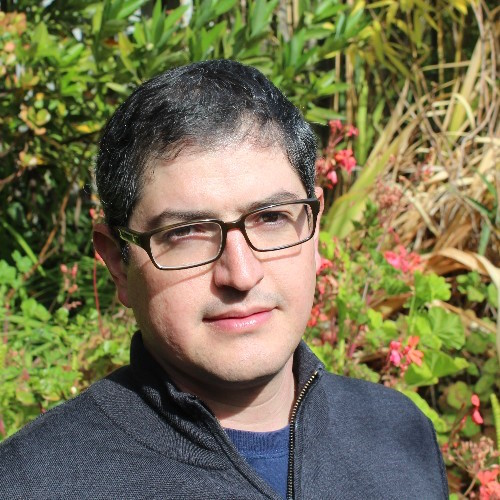Professor Carlos Montemayor
Carlos Montemayor, Ph.D., J.D. is Professor of Philosophy at San Francisco State University and an expert in Philosophy of Mind and Cognitive Science with over 15 years of experience at the intersection of consciousness studies, artificial intelligence, and temporal cognition. He is a prominent voice in the ethics of artificial intelligence and value alignment between humans and intelligent machines.
Carlos is widely recognized for his groundbreaking work on the dissociation between consciousness and attention, having authored the influential book Consciousness, Attention, and Conscious Attention. His most recent book, The Prospect of a Humanitarian Artificial Intelligence: Agency and Value Alignment, is published as open access and examines how to guarantee value alignment between humans and potentially intelligent machines through attention routines that satisfy similar needs.
As a Faculty Member of the Diverse Intelligences Summer Institute (DISI) since 2021, Carlos contributes to building a vibrant network of early-career scholars devoted to transdisciplinary inquiry into the origins, nature, and future of intelligences. He has been instrumental in developing theoretical frameworks for AI that acknowledge legal, moral, and political implications while distinguishing between epistemic and moral agency.
His research on temporal cognition has produced the seminal work Minding Time: A Philosophical and Theoretical Approach to the Psychology of Time, which offers an innovative account of time perception, incorporating scientific findings on psychological time-keeping mechanisms and simultaneity windows. Read Early and Late Time Perception: on the Narrow Scope of the Whorfian Hypothesis.
Carlos authored Knowledge, Dexterity, and Attention: A Theory of Epistemic Agency, developing the first sustained naturalized virtue epistemology that requires the manifestation of cognitive agency. He has also edited significant volumes, including Quanta and Mind: Essays on the Connection between Quantum Mechanics and Consciousness, which features a foreword by Roger Penrose, and Time’s Urgency, celebrating the 50th anniversary of the International Society for the Study of Time.
Carlos joined the faculty at San Francisco State University in the summer of 2009 after earning his Ph.D. in Philosophy with a Certificate in Cognitive Science from Rutgers University. His dissertation focused on the intersection between philosophy of mind, epistemology, and cognitive science, establishing foundations for his later contributions to consciousness studies and AI ethics. He has published over 70 scholarly articles and book chapters in prestigious journals and is cited over 1,449 times.
Prior to his philosophical career, Carlos earned his J.D. (Law Degree) from Universidad Nacional Autónoma de México (UNAM) between 1995 and 2001, where his thesis on human rights was published by Porrúa.
During his brief legal career, he participated in a Constitutional reform project concerning the rights of Indigenous peoples of Mexico, largely resulting from the Zapatista uprising. This early engagement with human rights issues profoundly influenced his later work on AI ethics and the humanitarian dimensions of artificial intelligence. Read Pasos hacia una naturalización cognitiva en la filosofía del derecho.
Carlos earned his Ph.D. in Philosophy from Rutgers University between 2003 and 2009, where he specialized in philosophy of mind and cognitive science while earning a Certificate in Cognitive Science.
Carlos advocates for AI policies that promote democratic values and human rights. He is also a regular contributor to Psychology Today, where he writes on topics ranging from consciousness and attention to the ethical implications of emerging technologies. His media appearances include interviews with Richard Marshall at 3:16 AM.
Carlos has received recognition for his interdisciplinary work bridging philosophy, cognitive science, and artificial intelligence. His open-access publication of The Prospect of a Humanitarian Artificial Intelligence reflects his commitment to making important research on AI ethics widely accessible. He continues to shape the discourse on value alignment in AI systems while maintaining active research programs in temporal cognition, epistemic agency, and the philosophy of consciousness.
Carlos lives in the San Francisco Bay Area, where he continues his research and teaching at San Francisco State University. His work represents a unique synthesis of Latin American philosophical traditions, Anglo-American analytic philosophy, and cutting-edge cognitive science, making him a distinctive voice in contemporary debates about consciousness, artificial intelligence, and human values.
Visit his LinkedIn profile, Personal Homepage, PhilPeople profile, ResearchGate profile, and Google Scholar page. Follow him on Facebook, Academia, Psychology Today, and X.
